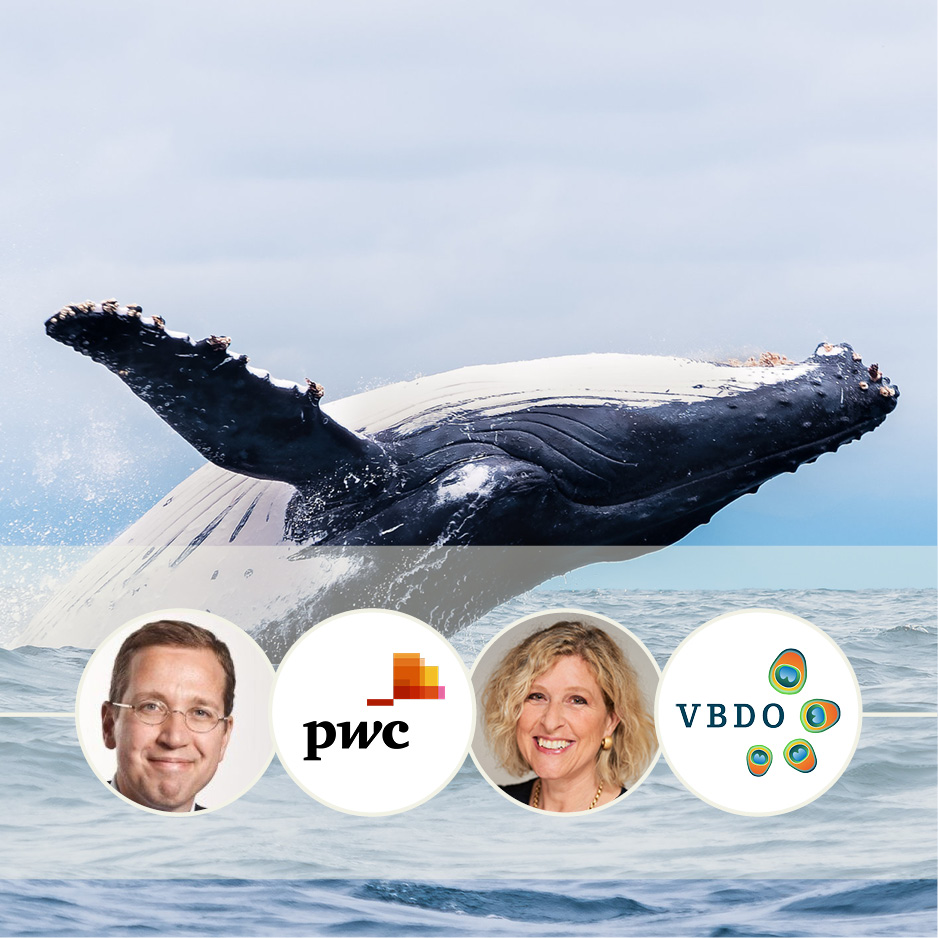What are (listed) companies doing to reduce their negative impact on biodiversity and increase their future-proofness? And what are the good practices to learn from? Investors are already working on it, large organizations need incentives to get started, and the current economy urgently needs to transform. For Alexander Spek, Sustainability Lead at PwC and Angélique Laskewitz, director at the Association of Investors for Sustainable Development (VBDO), biodiversity is the keyword.
Spek and Laskewitz discuss the impact of biodiversity on companies’ future sustainability daily. The report Biodiversity & Business, a collaboration between VBDO and PwC, outlines what large organizations are doing now, practically and strategically, and why this is essential for the resilience of the business community. Further research into the impact of biodiversity on the business community should lead to a new benchmark.
Biodiversity Awareness
“Companies too often underestimate the dependence on nature,” Laskewitz believes. “Our global economy and social progress depend on the stability of our ecosystems.” Spek advises clients on nature and strategy at PwC and emphasizes that more than 55 per cent of the global economy depends on nature. According to him, raising awareness is essential and on the agenda. “A large company dependent on natural resources recently announced that biodiversity is not an urgent topic for them. It shows that organizations seriously underestimate the value of nature for their future sustainability.”
Good and realistic picture
That is why PwC and VBDO investigated the biodiversity policies of large companies. In in-depth discussions with companies in, among others, construction, chemistry, retail, and lighting, they discussed the approach to biodiversity, the board’s involvement, the development of strategy, setting objectives, and all the challenges that come with this.
The outcome of these discussions, including practical examples and concrete challenges, show how essential bundled information is about this, Spek believes. “As a stakeholder – from customer to investor – you want to form a good and realistic picture of what all policy measures entail and what their strategic and financial effects are. Clear reporting, as the EU directive for mandatory sustainability reporting, or the Corporate Sustainability Reporting Directive (CSRD), now prescribes, ensures transparency and allows stakeholders to compare companies with each other.”
Biodiversity benchmark
“We want to challenge companies to continue working on biodiversity and nature,” says Laskewitz. With a benchmark, you stimulate better performance and more transparency from competitiveness. Every company wants to do well; no one wants to be left behind. From our previous experience with benchmarks, for example, for tax transparency, we also know that this works. Spek adds: “Thanks to the CSRD, transition plans and reporting in the field of biodiversity are no longer a choice; organizations now have to get started with them in concrete terms.”
Creating that transparency is the goal, Spek explains. “The CSRD puts biodiversity on the agenda, but in practice, this new guideline leaves much room for interpretation. Interpretation leads to different approaches and little coordinated action, making it difficult to compare companies with each other. That is why we are now working on a biodiversity benchmark – a template with clear and pre-established metrics so that not everyone has to reinvent the wheel. With this benchmark, we will soon provide direction for organizations to take meaningful steps in biodiversity. In addition, it helps stakeholders compare companies and their efforts properly,” says Spek.
Nature as a basis for business
Companies are getting an increasingly long to-do list. Now, mapping the dependencies and risks of the declining biodiversity, plus increasing the impact on nature, are added to that. “Nowadays, there are many topics and themes that require the attention of CEOs. Because of all the threats and opportunities, companies have to set priorities. I understand that, of course,” Spek believes. “But I continue to emphasize that nature is of fundamental importance for healthy life on earth and forms the basis of everything we do. So also of business.” Laskewitz shares that opinion. “The attention now paid to biodiversity will ultimately benefit everyone.”

